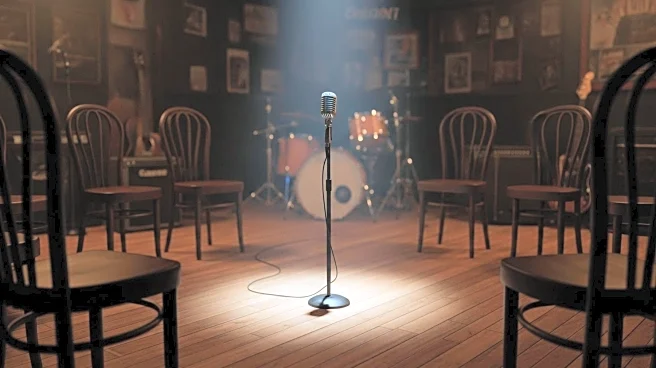What is the story about?
What's Happening?
Nectar's, a renowned music venue in Burlington, Vermont, has closed its doors after 50 years of operation. The venue, which played a pivotal role in launching the career of the jam band Phish, announced its permanent closure following a pause in operations due to challenges in the local music scene and downtown Burlington. Nectar Rorris, the original owner, credited Phish with bringing national attention to the venue, which became a hub for local and traveling musicians. Despite efforts to keep the venue open, rising costs and reduced foot traffic contributed to its closure.
Why It's Important?
The closure of Nectar's represents a significant loss for the local music community and the broader cultural landscape in Vermont. As a venue that supported emerging artists and hosted a variety of music genres, its absence may impact the opportunities for new musicians to gain exposure and build a fan base. The venue's legacy, marked by performances from notable artists like Grace Potter and B.B. King, underscores its importance in fostering musical talent and diversity. The closure may also reflect broader economic challenges facing live music venues in small cities.
What's Next?
The future of the Nectar's building remains uncertain, with no clear plans for its next use. The closure prompts questions about how the local music scene will adapt and what new venues might emerge to fill the void left by Nectar's. Stakeholders in the music community may need to explore alternative spaces and strategies to support live performances and maintain Burlington's cultural vibrancy.
Beyond the Headlines
Nectar's closure highlights the vulnerability of independent music venues in the face of economic pressures and urban development. The venue's history of supporting diverse musical acts and providing a platform for experimentation reflects broader cultural shifts in the music industry. As communities grapple with preserving cultural landmarks, the story of Nectar's may inspire discussions on sustainable models for supporting the arts.














